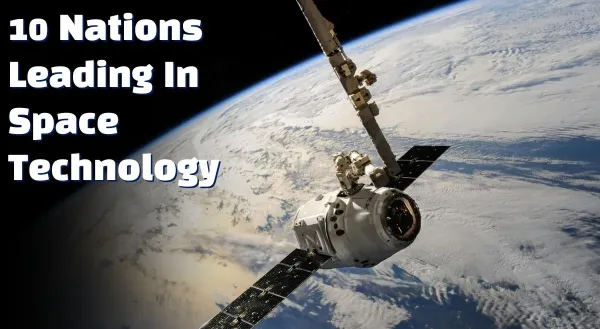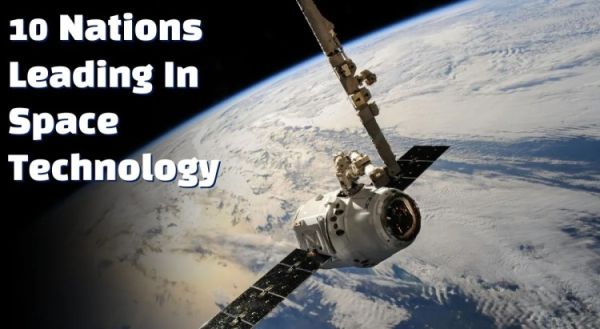
Nations With The Best Space Technology Humanity has always been captivated by the wonder of space. By 2025, space technology will be evolving and thriving together with artificial intelligence and the digital world. Through inventions and multimillion-dollar investments, nations all over the world are making tremendous attempts to learn all there is to know about space.

According to Statista and World Population Review statistics, the top 10 countries in space are listed below based on their main space projects in 2025 and government spending on them.
| Country | space agency acronym | space agency operational level | space agency name | Government expenditure on space programs 2024 (USD) |
|---|---|---|---|---|
| United States | NASA and USSF | 7 | National Aeronautics and Space Administration and United States Space Force | 79.68 billion |
| China | CNSA | 6 | China National Space Administration and China Manned Space Agency | 19.89 billion |
| Russia | ROSCOSMOS | 6 | State Space Corporation Roscosmos | 3.96 billion |
| India | ISRO | 4 | Indian Space Research Organisation | 1.89 billion |
| Pakistan | SUPARCO | 4 | Pakistan Space and Upper Atmosphere Research Commission | NA |
| Japan | JAXA | 4 | Japan Aerospace Exploration Agency | 6.8 billion |
| Brazil | AEB | 3 | Brazilian Space Agency | NA |
The US is at the forefront of space technology as of 2025. The James Webb Space Telescope revolutionizing astrophysics, NASA’s Artemis missions to explore the moon, and private giants SpaceX and Blue Origin spearheading the development of reusable rockets and satellite megaconstellations were some of the highlights of the state’s successful space missions.
With its space victories, such as the Tiangong space station, Chang’e lunar missions, and Tianwen-1 Mars rover, China is still propelling advancements in space technology. The National Space Administration of China combines commercial, military, and civic endeavors.
Russia has a strong space heritage. While new endeavors like the Oryol crewed spacecraft and lunar missions keep Russia in the spotlight, its Proton and Soyuz rockets serve as the workhorses for international launches. Its hold is further reinforced by international collaboration and the GLONASS navigation system.
India has emerged as an economical and potent space power thanks to its space agency, ISRO. India’s space capabilities are shown by the successful Chandrayaan-3 (lunar landing), AdityaL1 (solar observatory), and the upcoming Gaganyaan crewed mission. Startups in the private sector also contribute to India’s success in space dynamics.
Japan’s space program is well-known for both sample-return missions and planetary probes. Japan is advancing its lunar and Martian exploration efforts and is a major partner of the ISS. Its commercial space sector, which focuses on innovative technologies and modest satellite launches, is also growing.
The Pakistan Space and Upper Atmosphere Research Commission (SUPARCO) is the country’s space agency. Although the country cannot conduct launches, it can manage satellites.
Brazil’s equatorial satellite launch facility puts it at the forefront of Latin America’s space technology. In addition to facilitating telecommunications and environmental monitoring, the Brazilian Space Agency ultimately aims to dominate the area in small satellite launches.
Iran is still developing its own defense satellites and launchers. Its rockets support regional politics and self-reliance by enabling both military and civilian goals.
The space agency of the United Kingdom is working hard to influence the global space technology scene. The country has the capacity to launch and operate satellites. Still far behind, however, in terms of running a space station and carrying out human spaceflights.
The Centre national d’études spatiales/National Centre for Space Studies (CNES) is Pakistan’s space agency. Although the country cannot conduct launches, it can manage satellites. Similar to the UK, the country is capable of launching and managing satellites, but it trails behind in terms of running a space station and carrying out human spaceflights.